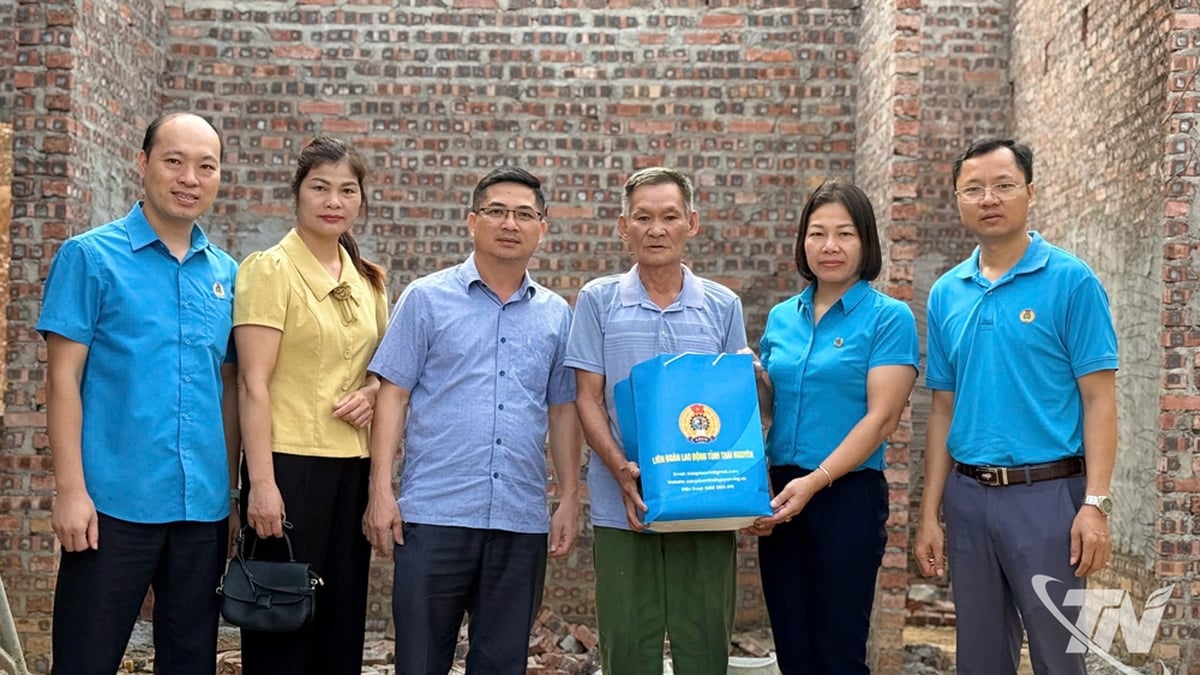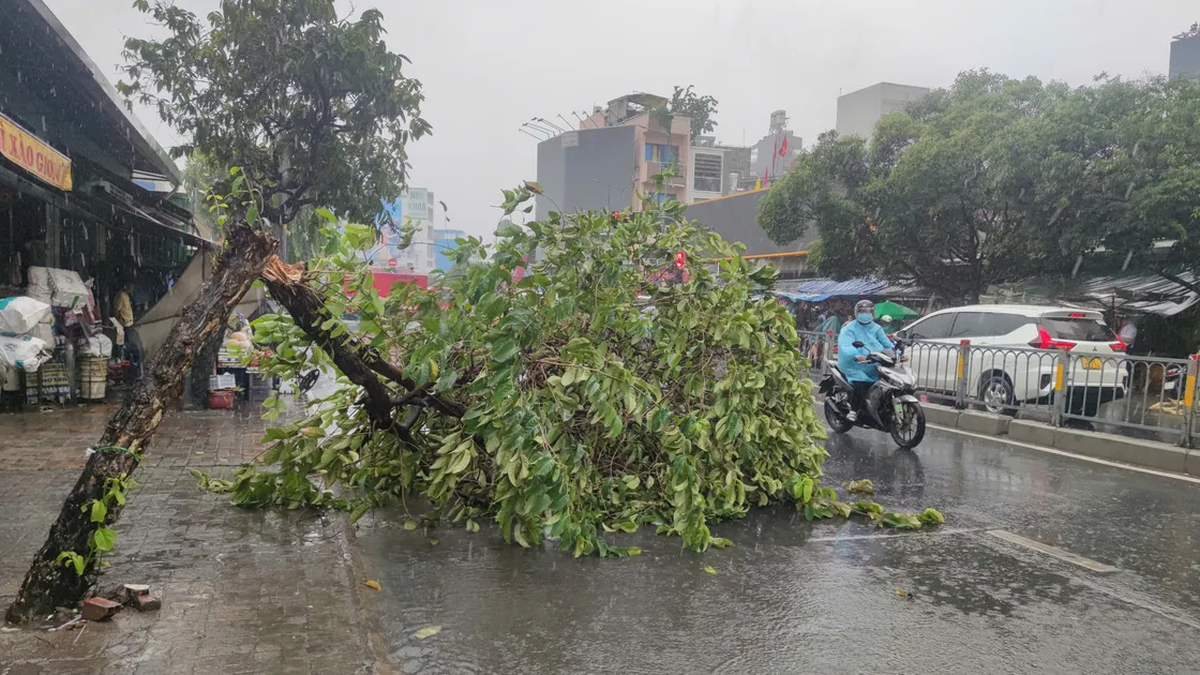 In the context of agriculture being increasingly affected by climate change and epidemics, agricultural cooperatives in the province are making constant efforts to develop more and more strongly, helping members increase their income, feel secure in their attachment to the fields, and contribute to the effective implementation of national target programs on restructuring the agricultural and rural economy .
In the context of agriculture being increasingly affected by climate change and epidemics, agricultural cooperatives in the province are making constant efforts to develop more and more strongly, helping members increase their income, feel secure in their attachment to the fields, and contribute to the effective implementation of national target programs on restructuring the agricultural and rural economy .

Products of Nhan Ly Agricultural Service Cooperative are favored by customers. Photo: Nguyen Luong
Recently, Nhan Ly Agricultural Service Cooperative, Phu Xuan Commune (Binh Xuyen) is one of two cooperatives in the province to be awarded the title "Cooperative Star 2024" by the Vietnam Cooperative Alliance for its leading achievements in cooperation, production and business linkage, building and developing product brands.
Sharing about this joy, Ms. Le Thi Huong, Chairwoman of the Board of Directors of Nhan Ly Agricultural Service Cooperative said: This is a great honor, recognizing the efforts and contributions of the Cooperative in many aspects over the past years.
Implementing the conversion and reorganization of operations according to the 2012 Cooperative Law since 2014, with nearly 640 member households, divided into 6 production groups, Nhan Ly Agricultural Service Cooperative boldly changed its thinking, applied scientific and technical advances to production, introduced many new, high-yield crop varieties into cultivation (such as RVT, DQ11, TBR225, Thien Uu 8 rice varieties...); at the same time, focused on innovating management methods, promoting linkages, creating a closed chain in production and consumption (linked with 11 units and enterprises), creating jobs and stable income for members and workers.
In 2020, with efforts to build a brand, the cooperative's "Phu Xuan Delicious Rice" product was granted a certificate by the Department of Intellectual Property (Ministry of Science and Technology) and recognized by the Provincial People's Committee as meeting the provincial 3-star OCOP product standards.
The province currently has 408 agricultural cooperatives, of which 261 are operating, the rest have stopped operating and are waiting for dissolution.
The main activities of agricultural cooperatives are services of supplying agricultural materials, plant protection, field protection, land preparation, agricultural extension, supplying plant and animal varieties, transferring scientific and technical advances into production, comprehensive animal husbandry...
In recent times, in order to motivate cooperatives in general and agricultural cooperatives in particular to develop, many support mechanisms and policies have been implemented by the province such as training and fostering human resources; trade promotion, market expansion; access to credit capital and the Cooperative Development Support Fund; land allocation and land lease...
With practical support policies, a number of agricultural cooperatives after being converted under the 2012 Law on Cooperatives or newly established have boldly invested and applied scientific and technical advances in production, increasing product quality and value, meeting market demand.
The organization and management work has been gradually strengthened and has gradually limited the existence of formalities and losses; every year, it has made certain contributions to the socio-economic development of the locality.
In 2023, the average revenue of each agricultural cooperative will reach 1.2 billion VND; the average profit of each cooperative will reach 250 million VND.
Typical cooperatives operating effectively according to the production method associated with the value chain such as Tam Dao Mushroom Cooperative (Tam Dao); Van Hoi Xanh Safe Vegetable Cooperative, An Hoa Agricultural Service Cooperative trading agricultural products (Tam Duong)...
However, in general, the operational efficiency of most agricultural cooperatives is not high. Most cooperatives can only provide some input services for production. The number of cooperatives that organize product consumption for members is not large.
The application of science and technology in management and production is still limited; the competitiveness of some products on the market is not high. Joint ventures and associations with other economic units are not tight and lack stability, especially in product consumption; the value that cooperatives bring to members is not much.
The internal capacity of many cooperatives is still weak, small in scale, poor in technical facilities, so it is difficult to access credit sources due to lack of collateral; have not yet developed methods of capital management and use; production and business plans lack feasibility, are ineffective, and have high potential risks of bad debt...
In 2023, outstanding loans to the province's collective economic sector were low at more than VND 127 billion (down nearly 25% over the same period in 2022) with 18 cooperatives and 36 cooperative groups borrowing capital.
In the current trend of increasingly deep international economic integration, the demand for safe and high-quality products is increasing, especially agricultural products... requiring cooperatives operating in the agricultural sector to proactively overcome inherent obstacles and problems in production and business activities such as dispersion, small scale, lack of linkage, slow application of advanced science and technology...
At the same time, develop and implement effective production and business plans, financial transparency, and timely debt repayment as a basis for credit institutions to lend capital; increase the application of new and modern scientific and technological advances associated with production linkages along the value chain to meet domestic and foreign market demand...
Along with that is the support from functional sectors and local authorities in implementing support for machinery, equipment, trade promotion, display points and product introduction.
Encourage units to innovate technology, link production and processing processes with large-scale export of key products according to the value chain, create breakthroughs in productivity and product quality, help agricultural cooperatives develop more and more, be a fulcrum for farmers to be more attached to their fields, promote the province's agricultural sector to develop in a sustainable direction.
Luu Nhung
Source



























![[Photo] National Assembly Chairman Tran Thanh Man visits Vietnamese Heroic Mother Ta Thi Tran](https://vphoto.vietnam.vn/thumb/1200x675/vietnam/resource/IMAGE/2025/7/20/765c0bd057dd44ad83ab89fe0255b783)







































































Comment (0)